8 weeks ago we all made websites. For many of you it was your 1st website ever (awesome!) Since then we’ve made a couple of beach trips, we’ve played with Instagram & French Girls, we’ve thought about Identity and Kickstarting projects. Now it’s time to finally do the thing that I’ve been going on about all semester, take your pretty cool Art110 Website and turn it into a great Personal ePortfolio.
For most of you this will be a website about your career, probably about your major. That’s probably the best way to go, but it’s not your only choice. If you have a hobby, a passion, a club, a cause, those too might be what you’d like to focus on.
Mainland Mermaids
Cristina Robinson took Art110 last spring. Here’s Cristina’s Art110 website. It looks a lot like many of yours. Cristina loves the ocean. It’s part of why she’s a marine biology major. But she also loves being a mermaid! Here’s the Mainland Mermaids website Cristina created for herself and her partner Prudence.
Your Website
Audience & Goals
Before you really get started you should think about who the audience for your website is, and what your communication goals are. If you’re making an Mechanical Engineering website your audience might be HR Directors at engineering firms. If you’re making a Physical Therapy website your audience might be athletes or people recovering from injuries. If you’re making a Cosplay site your audience might be people you’ve met at conventions. What you want to communicate in each of these situations is different, but try to be clear on what you’d like your audience to get from your site.
Find Content
What’s the content of your site? If you’re a mermaid you might go down to the beach and have somebody take pix of you. If you’re a rock star you might play at The Whiskey and shoot some video. If you’re a Nurse or a Business Marketer, you’ll probably want a combination of your coursework and any outside work or activities. If you’re just getting started you might not have too much to draw on.
The great thing about a website is how easy they are to update. There are lots of other ways to make websites besides WordPress, but one of the reasons I like it so much for you guys is exactly that: easy to update. You can add new stuff. Modify or remove old stuff. Fast. Easy.
So even if you don’t have much, put up anything you can. A class essay. If you haven’t even taken any major classes yet, then write a personal statement and maybe copy some sections out of the CSULB Catalog. You can list the Psychology or Aerospace classes you’ll be taking soon and what the course content is. Then in the semesters to come you can replace that with stronger, more personal work.
Theme
You don’t have to change your theme, but this is a really good week to look through that huge collection of WP themes and see if another one might serve you better. You can check out all your classmates sites and see who you think has the most compelling theme.
Responsive Design
These days one person might look at your site on a 4″ phone, and another might view it on a 46″ monitor. You never know. Does your site look good on one, but bad on another? When a site is designed to work well on any size display we call that Responsive Design. Most of us aren’t Developers or Designers, so it’s not our job to build responsive designs, but it’s still important to view our sites on different displays and make sure it’s working on all of them. If you discover that your theme looks awesome on a laptop, but is hard to navigate on a phone, you might want to look at some other themes. Most of the themes on WordPress.com should be pretty responsive, but it’s important to check.
Shaping Your Content
After Art110 is over, some of you will choose to keep your Art110 posts up, and some of you will take them down. That’s your call. Even if you do choose to keep them up (I’d recommend it) you probably don’t want them to be THE thing that peeps see when they come to your site. Whether you’re a Marine Biologist or a Mermaid, a Fashion Merchandiser or a Car Buff, a Computer Scientist or a Rock Star, you’d probably like that to be what’s featured when peeps come to your site.
Categories & Tags
There are a variety of ways to Shape Your Content including things like custom home pages, but probably one of the easiest and most powerful is with Categories, Tags & Menus. Categories & Tags are both labels you can stick on your posts. They’re pretty similar and they could be used interchangeably. I like to think of Categories as major overarching things, and tags as smaller details. I try to only use 1 or 2 categories per post, but lots of tags. So if I have an LA Sports blog where I write about the Lakers, the Dodgers, the Kings, UCLA, USC, and of course, The Beach, then those would probably be my categories, and specific players might be tags. So if I write about a Laker game, “Lakers” would be my category for that post, and then tags could include each individual player I say something about, like “Kobe” etc, and also the names of opposing teams, stadiums, win or loss, or anything else I think is important.
Menus
You can use menus and categories (or tags) to shape how visitors can use your site. For Mainland Mermaids or Plastic Castle, you might choose to have a whole new website with a new URL. But you could also have your “pro” and “class” content on the same site. If you used an “Art110″ category for all those posts, and then categories like “Photos” “Videos” “The Band” “Upcoming Shows” for your pro content, then you could set those categories in your menu and visitors could easily get to what they care about.
Home Page
Depending on your theme there are a few different ways to feature what’s important on your home page.
- Featured Categories — some themes will let you select which categories appear on your home page and which do not.
- Sticky — you can make a post “sticky” which will put it at the top of all your other posts, even newer ones.
- Custom Page — you can create a custom “page” and have that be your home page. Visitors can use your Menu to get at other content “inside”.
Widgets
You can put all kinds of things in Side and Bottom “widget areas”. These could be navigation tools, feature elements, or things like photos from IG or Flickr, or links out to other places, like your LinkedIn.
Embed Stuff
Remember that in addition to getting the “Embed Code” for Vimeo & YouTube, you can also embed things like Twitter & Instagram on your posts. These are nice ways to document projects you’re working on. So that senior year Aerospace Engineering project doesn’t have to be only documented at the end, you could easily snap a Twitter Photo or IG any time you meet with your team and then use those to create updates on the project.
Your Blog Post
For you blog post about this Activity, shoot some screen caps of your website “Before” and “After.” Write about your goals for your website. Who is your audience? What do you want to communicate to them? How are you achieving this?
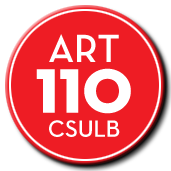

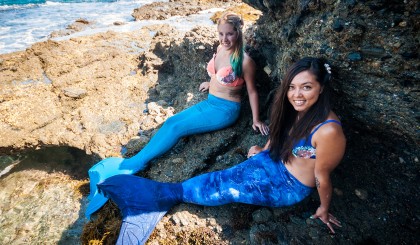

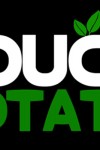
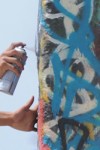


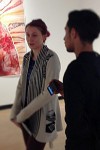

I couldnt get anything to work correctly so i didnt right a blog plost for the acitvity professor.